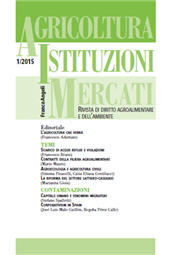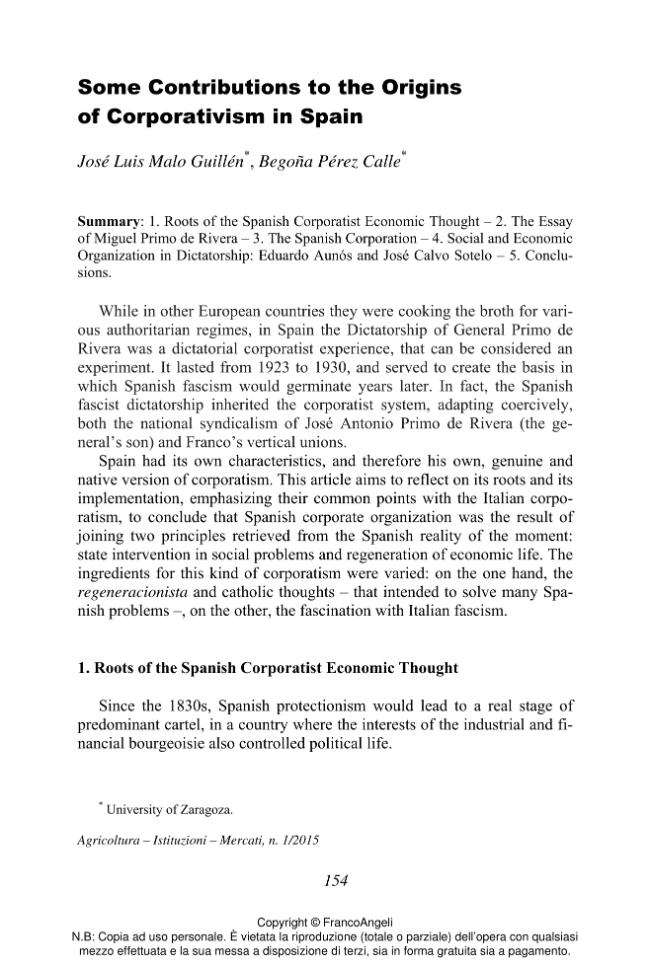Some contributions to the origins of corporativism in Spain
154-169 p.
Il primo corporativismo in Spagna è stato da sempre considerato il risultato delle diverse forze economiche e politiche dell'epoca, oltre che dei differenti interessi della borghesia. Ma, in realtà, tre contributi di pensiero economico hanno giocato un ruolo fondamentale: il neogremialismo, il regeneracionismo e il cattolicesimo sociale. Premesse queste considerazioni, il primo tentativo di corporativismo nel 1923 può essere letto come un processo autoctono e non come la versione spagnola del fascismo dei vicini italiani. La risposta alla situazione del Paese nella teoria economica e nella realtà sociale, insieme con l'influenza della filosofia dominante nel sistema italiano, ha facilitato l'accesso al primo regime corporativo.
Questa breve esperienza dittatoriale ha contribuito a preparare il terreno in cui il fascismo spagnolo sarebbe germinato anni più tardi, ed è molto importante analizzare gli i principali input nella gestazione di questo pensiero. Quindi, si può comprendere che l'organizzazione corporativa spagnola è stato il risultato dell'unione di due dinamiche: l'intervento dello Stato nei problemi sociali e la rigenerazione della vita economica. Due principi desunti dalla realtà spagnola del momento. [Testo dell'editore].
It's always been understood that the first corporatism in Spain was the result of the different economic and political forces, besides the different interests of that bourgeoisie. But there were really three ingredients in economic thought that played a main role: neogremialismo, regeneracionista speech and social catholicism. By these means, the first essay of the corporativism in 1923 can be interpreted as an autoctonous process and not as the Spanish version the fascism of our Italian neighbours. The answer to the country's situation in thought and social reality, coupled with the influence of the prevailing philosophy in the Italian system, facilitated the entry to the first corporatist regime.
This brief dictatorial experience helped to cook the broth where Spanish fascism would germinate years later, and to analyze the mean inputs in the gestation of this thought is of great importance. So, we can understand that Spanish corporate organization was the result of joining two principles: state intervention in social problems and regeneration of economic life. Two principles extracted from the Spanish reality of the moment. [Publisher's Text].
Is part of
Agricoltura, istituzioni, mercati : rivista di diritto agroalimentare e dell'ambiente : 1, 2015-
Articles from the same issue (available individually)
-
Information
DISCIPLINES
KEYWORDS
- Corporativismo, fascismo, regenacionismo, cattolicesimo sociale, dittatura di Primo de Rivera
- Corporativism, Fascism, Regeneracionismo, Social Catholicism, Primo de Rivera Dictatorship



